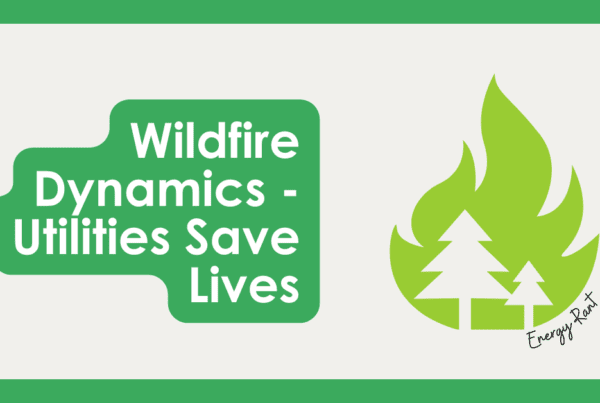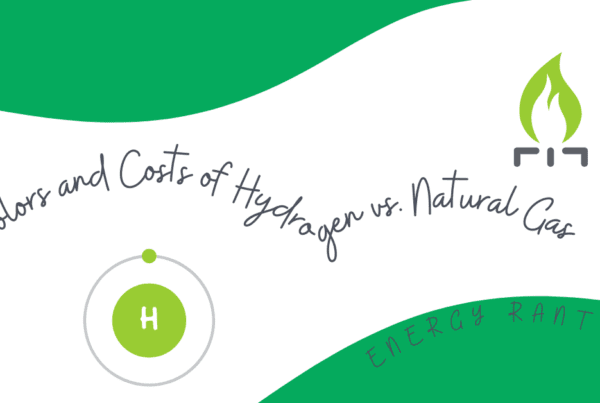
Continuing on from the surface scratch delivered in Refrigerator Sitcoms and Lethal Toaster Ovens, this post provides more fact, fiction, and maybe some things you’ve never considered for saving energy.
First, I came across some interesting data while reviewing evaluation reports for a major Midwest utility last week. Recall in Bait and Switch, and again backed by ACEEE as explained just last week, regulatory agencies need to stop stopping fuel switching from dumb uses of electricity to smart uses of natural gas. The specific item is the electricity guzzling clothes dryer. As it turns out, the saturation of electric clothes dryers in this utility’s service territory was 84%. The average number of loads per household is about 6.6 – call it 7. Doing a little ballpark math; with 117 million households[1] in the country, guesstimating about 85% have their own laundry equipment, we have available 106 billion kWh to dry clothes. That is equal to 24 typical 500 MW power plants running full tilt every hour of the year, or what China adds to their power supply in about four days[2].
A few more interesting tidbits on wash machines: savings from wash machines are due to the wash machine itself, (hot) water savings, and dryer savings as these washers spin more water out of clothes before being tossed into the dryer. Considering a residence that has electric everything (water heater and dryer), savings are roughly 210 kWh per year for an efficient wash machine. About 10% is from the washer itself; 50% from reduced water heating, and 40% for the dryer. To calculate savings for natural gas, find a consultant. Furthermore, about half the customers have electric water heaters (OMG!), but only about half the loads are washed with warm/hot water. This is figured into the mix above.
And BTW, swapping out all the electric water heaters would take down another 18 large power plants.
Speaking of China, here is another tip you won’t see anywhere: buy good stuff and keep it for a long time! As you know, since you are reading this, about 27 months ago, Michaels Energy was hatched out of Michaels Engineering. Last month, we dropped Michaels Engineering completely and rebranded with a new logo. The molt is complete. However, I still have clothing with the Michaels Engineering and the former Michaels Energy logos, and to me this stuff is as fresh as the cheese in the grocery store. Once you’re old enough to not be charged extra for car rentals and married or in some other committed relationship, no one cares or pays attention to others’ attire. So, now I have a bunch of date stamped clothes I would otherwise use for another 15 years. Energy saving tips: buy good stuff and don’t rebrand. You’ll save money and energy and reduce the trade deficit, but unfortunately may put someone making 78 cents per hour out of work.
Then there is this classic: use the dishwasher and not the sink to clean dishes. Question: does this factor in washing the dishes with the tap before putting them in the dishwasher? Does it also include not blasting water full throttle out of the tap when washing them by hand?
Energy saving tip: don’t buy so much crap. The street I live on is pretty typical of every neighborhood I’ve been familiarized with. Whether it’s one, two, or now typically three-car garages, peoples’ cars are parked outside because their garage is full of crap: toys, bikes, exercise equipment that was used for 11 days, various recreational vehicles, four or five half-completed projects. It’s especially hilarious when the vehicle is a behemoth SUV parked outside. These owners then start their cars 15-20 minutes in the morning before heading off to work to defrost the windows and warm the interior a little. In the summer, they are sizzling hot already in many cases. Save your upholstery, leather, vinyl, and paint job by clearing out the garage and parking the car where it should be. Buy good stuff and maintain it.
Energy saving tip: close the garage door already! Many homes with attached garages have substantial insulation such that they can lessen the heat loss through the connecting wall. Closing the garage door also keeps the cars warmer in winter to reduce the temptation for warming them up in the morning. It also helps thaw snow and ice off the car. A non-energy benefit is keeping varmints out of the garage. It doesn’t get any easier for mice to walk in through an open garage door. We also had a robin one spring that insisted on building a nest on our garage door opener. Wouldn’t be pretty.
Energy saving tip: eat venison. That’s right. This would save enormous quantities of energy. These 150 pound rodents are a bane to farmers, motorists, gardeners, and arborists. The DNR should eliminate bag limits altogether. Savings include no artificial resource consumption, unlike cattle that produce one pound of meat per ten pounds of food, generally corn, and an ocean of water. It’s locally grown. It’s practically organic. It reduces garden damage, increasing home-grown food production and all the savings with that. It would save millions of dollars in car damage and reduce injury, and even death, due to crashes. Do you realize how much energy an auto body repair shop uses? And finally, it allows my beloved trees to grow above waist height. Speaking of waists, it’s much leaner and healthier, packed with iron and protein, and just might keep some people off the defibrillator[3].





